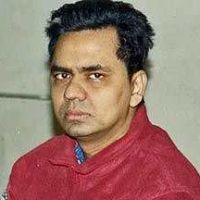Kinta leg draws an impressive crowd.
 LAST Sunday, I dropped by the Kinta leg of the Tan Sri Lee Loy Seng Perak chess grand prix. This was the first leg to kick off the grand prix, and it was also the first time the Perak International Chess Association had undertaken such an ambitious project within its borders. I was curious to see the response.
LAST Sunday, I dropped by the Kinta leg of the Tan Sri Lee Loy Seng Perak chess grand prix. This was the first leg to kick off the grand prix, and it was also the first time the Perak International Chess Association had undertaken such an ambitious project within its borders. I was curious to see the response.
Impressive. Close to 200 participants, according to the proud organisers. And this number wasn’t even counting the tournament officials and helpers, some of the players’ parents and other relatives.
As I walked along the aisles looking at the serious concentration around me, I realised that save for a handful of familiar faces, the rest of the participants were total strangers to me.
It shouldn’t be a surprise, really, because this was a Perak event, organised by Perak chess officials and played mainly by Perak residents.
Many of the players had come from all over the state, and this was probably the first time they were taking part in a chess tournament. I hope they enjoyed the experience.
Bangladesh grandmaster Ziaur Rahman had probably enjoyed the experience, too. You would have read two weeks ago that he is now Malaysia’s resident grandmaster and will be staying here for one year to contribute his expertise to raise the level of local chess.
No sooner had he landed on our shores when he was whisked up to Ipoh for this tournament. Naturally, he took star billing in this event. He was the player that many of the participants would want to meet. This would be an opportunity to play against a chess grandmaster. However, only seven would get the chance.
For a long while, it looked as if the fight for the first prize would be close. Because of the large number of entries, there was a real possibility that there could be two joint winners and they might not have played with one another.
But in the end, order was restored and Ziaur laid claim to his first tournament success in Malaysia. Nevertheless, his success was not without some anxiety. In the last round, the grandmaster suddenly found himself defending a very tricky position with the white pieces.
With very enterprising play, Fong Yit San found himself in an advantageous position against the Bangladesh player. People watching the game thought he could press home the advantage but somehow, the critical moment passed and Ziaur forced off the exchange of most of the pieces. In the end, the grandmaster’s experience counted. Still, it was a very creditable game by the Kampar youngster.
The Tan Sri Lee Loy Seng Perak chess grand prix came about because of an inspired meeting that Lee’s son, Datuk Seri Lee Oi Hian, had with Datuk Tan Chin Nam, the honorary life president of the Malaysian Chess Federation. The idea was mooted and Lee was receptive to it. A series of chess tournaments made their way around Perak, the state where the Tan Sri was born and had made his fortune.
From this one idea, the chess grand prix became a reality. With the Kinta leg now successfully concluded, the grand prix will continue in the other districts of Perak and will culminate with the final in December this year. The CRC Taiping will be the venue of the second leg next month.

 SOMETIMES an opportunity comes along for a well-paying job that appears too good to give a miss. One may already be holding a job that pays a fair salary with an assurance of security of tenure until retirement. Yet the job now being offered may have remuneration and benefits that are almost irresistible.
SOMETIMES an opportunity comes along for a well-paying job that appears too good to give a miss. One may already be holding a job that pays a fair salary with an assurance of security of tenure until retirement. Yet the job now being offered may have remuneration and benefits that are almost irresistible.
